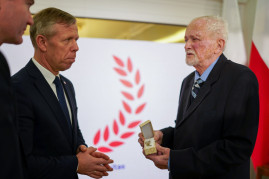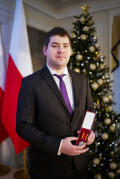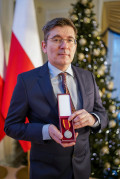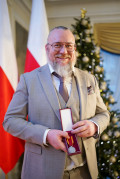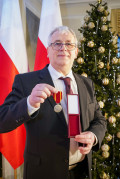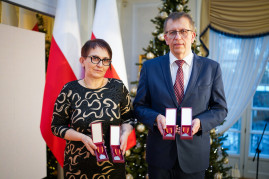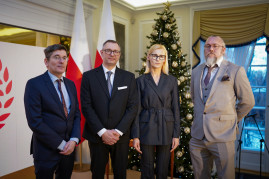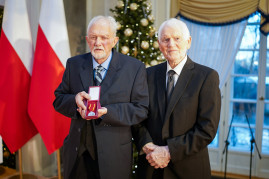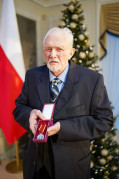We know the names of the Virtus et Fraternitas Medal recipients | 2024 - Instytut Pileckiego
We know the names of the Virtus et Fraternitas Medal recipients | 2024
On 17 December 2024, the Virtus et Fraternitas Medal ceremony was held for the sixth time at the Belweder Palace in Warsaw. The award was given to 10 people from the following countries: Austria, Norway, Slovakia and Hungary.
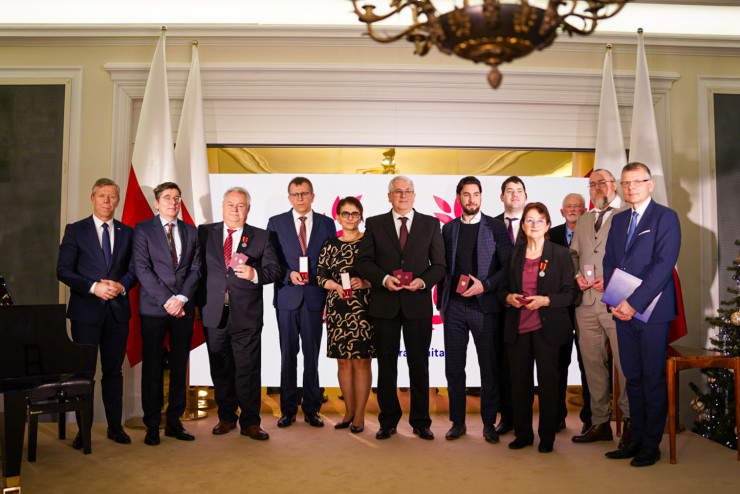
The medal is awarded by the President of the Republic of Poland, at the request of the director of the Pilecki Institute, to individuals who have shown special merit in helping Polish citizens in a 20th century marked by totalitarianism. It is also given to people from abroad who nurture the memory of Poles and Poland’s 20th-century history.
The ceremony was attended by: representatives of the Management of the Chancellery of the President of the Republic of Poland, with Minister Piotr Ćwik, Deputy Head of the Chancellery, who presented the Medals on behalf of the President; a representative of the Diplomatic Corps, Mr. Martin Cimerman, Deputy Head of Mission at the Embassy of the Slovak Republic in Poland, who represented Ambassador Andrea Elscheková-Matisová at the ceremony; relatives of the Medal recipients; representatives of the Ministry of Culture and National Heritage and the Ministry of Foreign Affairs of the Republic of Poland; Professor Krzysztof Ruchniewicz, Director of the Pilecki Institute and host of the ceremony.
Minister Piotr Ćwik read out a letter from the President of the Republic of Poland Andrzej Duda to the Participants in the ceremony. I offer my congratulations and deepest appreciation to the relatives of the Virtus et Fraternitas Medal recipients who are here today to collect the medals on behalf of their deceased family members. All the Medal recipients – the citizens of Hungary, Norway and Slovakia – will forever remain in our grateful memory as great friends of the Polish nation who testified to the power of humanity in the dark times of violence and contempt. I offer my sincere thanks for the help they provided to our countrymen, guided by the fundamental imperative of heart and conscience. I would also like to express my heartfelt gratitude to the Medal recipients from Austria, whose efforts contributed to the commemoration of the suffering of Polish prisoners at the Nazi German concentration camp complex at Gusen. The painful legacy of history has to be carefully examined and brought to light, and the walls of silence that still surround these difficult topics have to be broken down so as to prevent such tragedies from ever befalling present or future generations.
The medals were awarded to Marta Gammer and Rudolf Haunschmied, citizens of Austria, Alfred Iversen, Walborg Svensson Bernacka and Aud Valla from Norway, Etela Laczuschová, Otto Ludvigh, Berta Ludvighová and Helena Vargová from Slovakia, and Ferdinánd Leó Miklósi from Hungary were posthumously awarded medals in recognition of their service in helping Polish citizens. Descendants and close relatives received the medals on their behalf.
The 20th century has shown that safe havens may not exist if the rules and laws that guard them are rejected, said Director of the Pilecki Institute, Prof. Krzysztof Ruchniewicz.
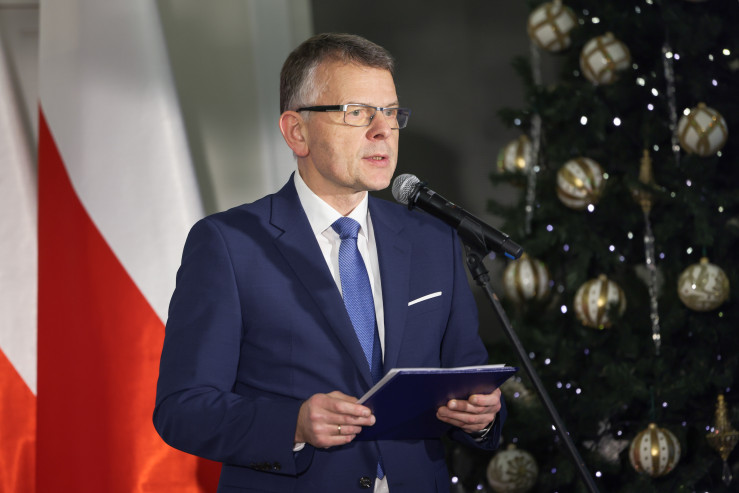
The Virtus et Fraternitas Medal is an exceptional honor. In this way, we show our gratitude and respect to those who, many decades ago, faced the fundamental decision of whether the values they professed really shape their lives and actions. They recognized that they do. At the moment of truth, they did not avert their eyes, quicken their steps, or pretend not to hear a knock on the door, cries of terror or silent pleas for help. They saw a Polish prisoner of war, an arrestee, an exile or simply a neighbor – but above all they saw a person in danger. Maintaining the memory of such “silent heroes” is an important task for us. It was those ordinary people, often just like us, who rescued faith in humanity, nobility and goodness. Learning about their stories is therefore a message of hope, addressed precisely to us today, especially the youngest generations, stressed Prof. Ruchniewicz.
During the ceremony, the Medal was awarded to:
Martha Gammer, an Austrian citizen who has been active in local history since the 1970s, co-founder and chairwoman of the Gusen Memorial Committee, which has been active since 2008 to preserve the memory of the camp’s victims, including Poles.
Rudolf Haunschmied, an Austrian citizen, vice-chairman of the Gusen Memorial Committee and activist promoting knowledge of KL Gusen and its victims.
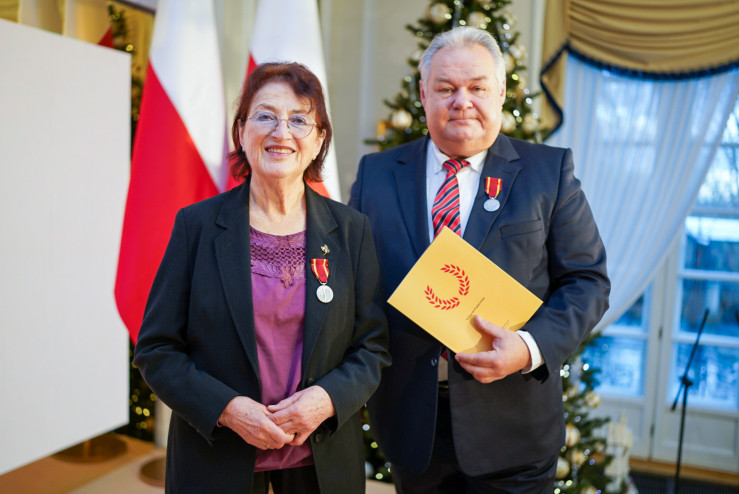
Alfred Iversen, a Norwegian citizen who helped Polish prisoners to escape a German forced labor camp and make their way to neutral Sweden.
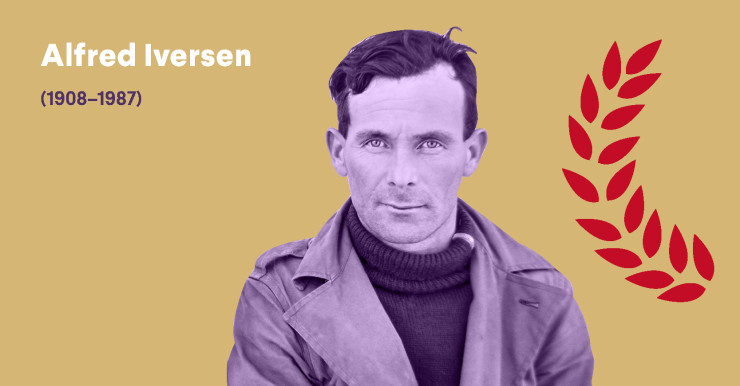
Walborg Svensson Bernacka, a Norwegian citizen who helped prisoners of war incarcerated in the German camp at Sandnes survive, and in the 1980s was involved in humanitarian aid sent to Poland from Norway. She is the first person to receive the Medal for helping Poles in the 1980s.
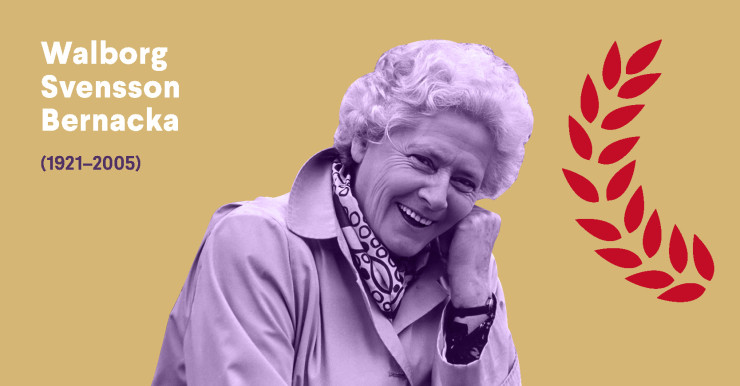
Aud Valla, a Norwegian citizen who supported prisoners of war during their escapes, and was their guide when crossing the Norwegian-Swedish border.
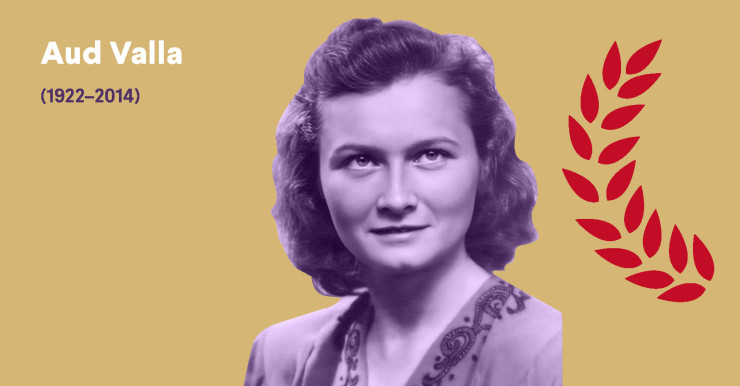
Etela Laczuschová, Otto Ludvigh, Berta Ludvighová and Helena Vargová, citizens of Slovakia who created a safehouse for Polish refugees in their home in Kežmarok and a transfer point for Polish couriers carrying information from occupied Poland to Hungary.
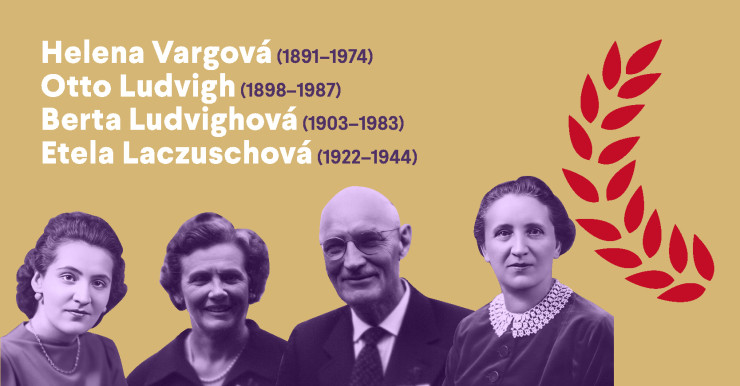
Ferdinánd Leó Miklósi, a Hungarian citizen and journalist who even in his youth was involved in popularizing Polish affairs in Hungary, and who from September 1939 actively helped Polish war refugees and supported the evacuation of interned soldiers to France.
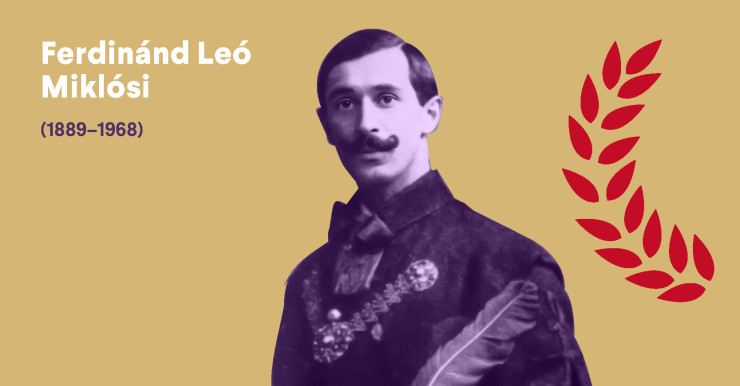
Following the awarding ceremony, Martha Gammer, Chair of the Gusen Memorial Committee who was honored for cultivating the memory of Polish victims of Nazi German crimes, delivered a speech. What was Gusen? It was a place of suffering and destruction, later also of the Holocaust, the Shoah, of the SS brutality and complete lawlessness, where individual acts of violence spurred by hatred or contempt were widely tolerated. After the camp was liberated, virtually no one was brought before the court. Gusen was a place of injustice, contempt for human beings, suffering and death. This is why we cannot let it sink into oblivion, although several such attempts have been made over the past decades.
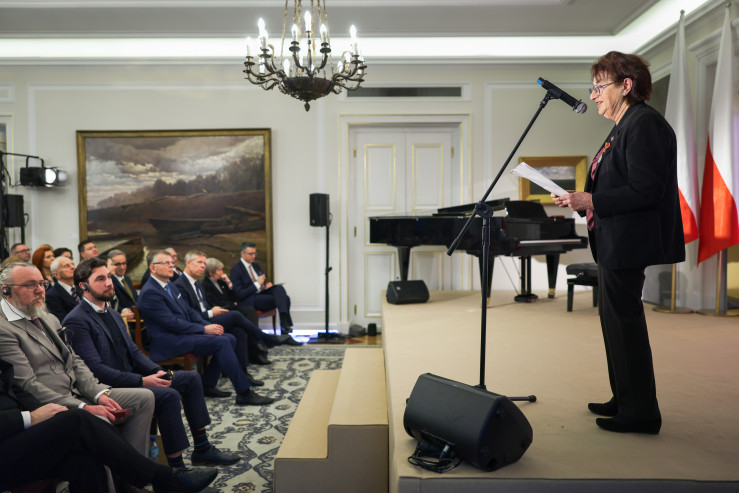
A speech of thanks on behalf of survivors of KL Gusen was given by Jacek Tarasiewicz, President of the Club for Former Political Prisoners of the Mauthausen-Gusen Concentration Camp. Thanks to the international community, a lot of places were preserved after the war to remind posterity of the fate man concocted for fellow man. For many years, the Austrian state was unwilling to commemorate these times. It was the Austrian citizens who, out of their own will, made efforts to preserve what was left of the camp and to promote the truth about these times; it was they who were open and friendly towards former prisoners and their descendants, for there are not many surviving prisoners today. It is thanks to such wonderful people like Martha Gammer and Rudi Haunschmied, thanks to their relentless efforts in the face of overwhelming odds that concentration camps are discussed during history lessons in Austrian schools, that there are places where we can honor the dead and that so much knowledge has been amassed. It is thanks to such people like our Austrian friends that it is easier to expose how neo-Nazis are raising their heads in various places around the world, how racism and xenophobia are becoming rife. There should always be time for a warning against the worst. For as a former Auschwitz prisoner once said, Fascism and its ideology did not fall from the sky. The world, however, is unwilling to draw conclusions from history. Today one of the victors of the Second World War, Russia, is itself an aggressor, and the ideas it propagates are utterly worthless.
About the Medal
“The measure of a man is his heart”, John Paul II
The Virtus et Fraternitas Medal is a decoration awarded by the President of the Republic of Poland to foreigners who have rendered meritorious assistance to persons of Polish nationality or Polish citizens of other nationalities who were victims of Soviet crimes, Nazi German crimes, crimes motivated by nationalist motives or other grievances constituting crimes against peace, humanity and war crimes committed in the period 8 November 1917 – 31 July 1990.The decoration may also be awarded to those who take action in memory of those who brought aid and rescue. The Virtus et Fraternitas Medal is a symbol of remembrance and gratitude to foreigners who brought aid to Polish victims, provided shelter, shared food, issued false documents, sought better conditions in refugee camps or documented wartime campaigns. The medal is awarded at the request of the Director of the Pilecki Institute, who, after receiving a positive opinion from the Council of Memory operating at the Pilecki Institute and the Ministry of Foreign Affairs, applies to the President of the Republic of Poland for the award. The medal was designed by Anna Wątróbska-Wdowiarska.
The obverse of the medal depicts the Polish national emblem – a white eagle, below which are two crossed palm branches symbolizing the award and acknowledgement. The reverse of the medal depicts a female figure with the oldest Polish state insignia – a stylized image of the Spear of Destiny, and a laurel wreath symbolizing victory. Along the rim of the medal runs a quotation of the words of Pope John Paul II from a homily delivered in Sopot in 1999: “The measure of a man is his heart”.
The Virtus et Fraternitas Medal has been awarded every year since 2019. To date, the Medal has been presented to 68 people from 13 different countries. Now, the medal recipients have been joined by another 10 whose stories were previously unknown.
For more information about the medal (click).
The Pilecki Institute is working hard to find new, hitherto unknown stories. In order to facilitate the submission of candidates, an online form has been launched and is available on the Pilecki Institute’s website at: https://instytutpileckiego.pl/en/medal/zglos-kandydata?setlang=1.
See also
- Virtus et Fraternitas Medals awarded | Discover the stories of heroic Ukrainians who saved their Polish neighbors during the Volhynian Massacre
Virtus et Fraternitas Medals awarded | Discover the stories of heroic Ukrainians who saved their Polish neighbors during the Volhynian Massacre
On 6 July 2023, at the Belweder Palace in Warsaw, fifteen heroic Ukrainians were commemorated for saving their Polish neighbors from death at the hands of the Ukrainian Insurgent Army (faction of the Organization of Ukrainian Nationalists) during the Volhynia Massacre.
- We now know the names of the Virtus et Fraternitas Medal recipients
We now know the names of the Virtus et Fraternitas Medal recipients
On 20 December 2022, at the Belweder Palace in Warsaw, we honored Ilona Andrássy, Trofim Daneliuk and the Skakalski family, who demonstrated courage and solidarity with the persecuted when Poland was attacked by two murderous regimes, and the Polish citizens were in grave danger.
- Virtus et Franternitas Medals presented
Virtus et Franternitas Medals presented
The third edition of the Virtus et Fraternitas Medal Gala took place on 15 June 2022. This time, at the request of the Director of the Pilecki Institute, the President of the Republic of Poland bestowed medals on a total of 23 people.
- The Virtus et Fraternitas Gala 2021. Meet all the recipients!
The Virtus et Fraternitas Gala 2021. Meet all the recipients!
The President of Poland Andrzej Duda awarded the medals to foreigners who provided aid to Polish citizens during the 20th century, in times of both war and peace.
- Walenty Jabłoński, doctor and an exile in Siberia, is dead
Walenty Jabłoński, doctor and an exile in Siberia, is dead
We are sad to learn of the death of Walenty Jabłoński, an exile in Siberia, participant of the Union of Siberian Exiles in Białystok. He was deported to a kolkhoz in Kazakhstan in 1952, where he was saved from starvation and death by Tassybaj Abdikarimow.
- Virtus et Fraternitas Medal
Virtus et Fraternitas Medal
The Virtus et Fraternitas Medal is a token of gratitude of the Republic of Poland for rescuing its citizens in times of the country’s greatest distress.
- The President of the Republic of Poland decorates recipients with the Virtus et Fraternitas Medal
The President of the Republic of Poland decorates recipients with the Virtus et Fraternitas Medal
The Virtus et Fraternitas Medal has been bestowed for the first time in history in June 2019. The awards were given by the President of the Republic of Poland, Andrzej Duda, acting on a motion of the Pilecki Institute.
